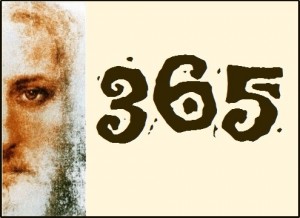Day Forty-two – Matthew 13:18-23
 Draw near to God and He will draw near to you
Draw near to God and He will draw near to you
Hear then the parable of the sower. . .
And the one on whom the seed was sown on the good soil, this is the man who hears the word and understands it; who indeed bears fruit and brings forth some a hundredfold, some sixty, and some thirty. Matthew 13:18-23
I am not a good listener. I know that to be true, but I do not know why. When I try to listen, my attention is drawn to the wrong message or is distracted by other sounds. When listening for God, I frequently hear nothing. When Jesus explained why he taught in parables, it was for people like myself (v. 13). How fortunate it is for me that he explained the parable of the seed and the soils.
What Jesus said about the soil samples can teach us how to become better listeners. If we examine ourselves in the light of each example, we can discover why his word does not penetrate our hearts or if it does, why it does not go deep (vv. 19-21). We will come to realize the role that distractions play in replacing our meditation on his word with worry and wealth’s deceit (v. 22).
Another way to approach the importance of listening carefully to the word is by noticing the difference between the disciples and the crowd.
Exclusive: The disciples were “granted to know the mysteries of the kingdom”–everyone else received parables. A parable is not the thing itself, but an analogy, a symbol, a verbal simulation. For the disciples, no parable was necessary. In fact, perfect knowledge was unnecessary. To avoid stepping into a hole in ones path, the person who can see does not need to know if it is a mine shaft, pothole, or the mouth of a well. But there is no easy way to describe a sight as ordinary as color to a person who cannot see. The best we can do is say, “It is like . . .”
Inclusive: The seed was scattered indiscriminately over the crowd. It fell on the ears of those who paid no attention, those who listened for a little while, and those who listened well. Furthermore, a greater inclusivity was possible to anyone who wanted it because, through selective and careful listening, what a person heard and received could be increased (v. 12). But this principle of listening works both ways. Whatever one chooses to listen to will increase more of the same. If one does not listen to the word, he loses what little he had.
God establishes the boundaries of exclusion and inclusion, but he allows us to decide on which side we wish to stand. The miracle is that, in Jesus, the blind receive sight and the deaf hear (Mt. 11:5).
Thank You, Lord Jesus, for opening our eyes and ears. Watch over the secret garden of our hearts today.



 Daily Meditations From the Scriptures
Daily Meditations From the Scriptures